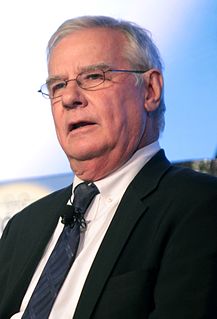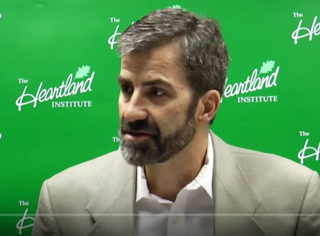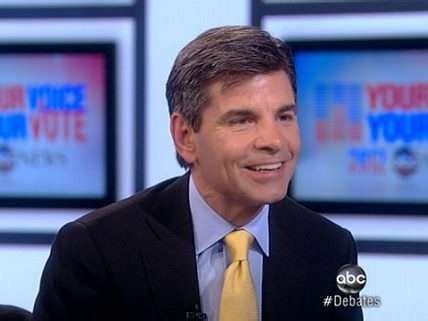A Quote by Patrick Michaels
The conference also has a moral duty to examine the corruption of science that can be caused by massive amounts of money. The United States has disbursed tens of billions of dollars to climate scientists who would not have received those funds had their research shown climate change to be beneficial or even modest in its effects. Are these scientists being tempted by money? And are the very, very few climate scientists whose research is supported by industry somehow less virtuous?
Quote Topics
Also
Being
Beneficial
Billions
Billions Of Dollars
Caused
Change
Climate
Climate Change
Conference
Corruption
Dollars
Duty
Effects
Even
Examine
Few
Funds
Had
Industry
Less
Massive
Modest
Money
Moral
Moral Duty
Received
Research
Science
Scientists
Shown
Somehow
States
Supported
Tempted
Tens
Those
United
United States
Very
Virtuous
Whose
Would
Related Quotes
Despite the international scientific community's consensus on climate change, a small number of critics continue to deny that climate change exists or that humans are causing it. Widely known as climate change "skeptics" or "deniers," these individuals are generally not climate scientists and do not debate the science with the climate scientists.
The scientists Heartland works with demanded we host a ninth conference this year to foster a much-needed frank, honest, and open discussion of the current state of climate science and we just couldn't refuse. The public, the press, and the scientific community will all benefit from learning about the latest research and observational data that indicate climate science is anything but 'settled.
I think there are a substantial number of scientists who have manipulated data so that they will have dollars rolling into their projects. And I think we are seeing almost weekly or even daily scientists are coming forward and questioning the original idea that man-made global warming is what is causing the climate to change.
Scientists who dissent from the alarmism have seen their grant funds disappear, their work derided, and themselves libeled as industry stooges, scientific hacks or worse. Consequently, lies about climate change gain credence even when they fly in the face of the science that supposedly is their basis.
There's real economic costs to climate change - So, Superstorm Sandy led to billions of dollars in damages. The fires out in the west, 70 million dollars a day are being spent in fighting fires that have clearly been exacerbated by drought and climate change. So, people have pointed out the true dollars and cents cost of inaction on climate change.
Every climate scientist has his or her own views on some issues that differ from the mainstream in detail. But the broad findings of the IPCC (Intergovernmental Panel on Climate Change) have general support amongst scientists with relevant specialist expertise. The broad wisdom of the IPCC is strongly contested by a small number, and a small minority, of reputed climate scientists. It is not contested by the large majority of specialists, and by the leaders of the relevant learned academies in the countries of great scientific accomplishment.
Climate scientists think of nothing but climate and then express their concerns in terms of constructs such as global mean surface temperature. But we live in a world in which all sorts of change is happening all the time, and the only way to understand what climate change will bring is to tell stories about how it manifests in people's lives.


































